
How Does Pennsylvania Prepare To Run A
safe & secure election?
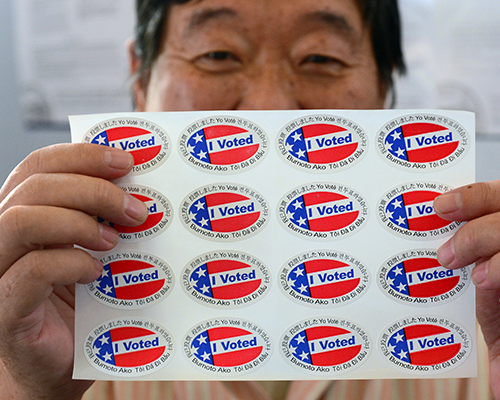


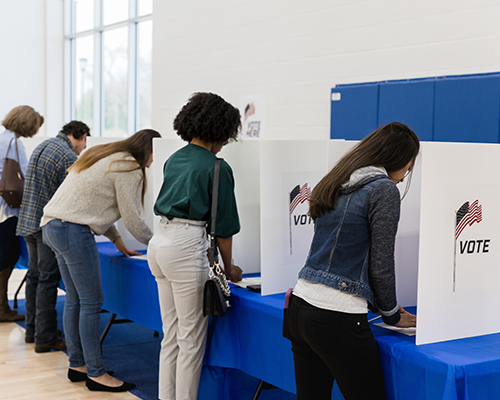
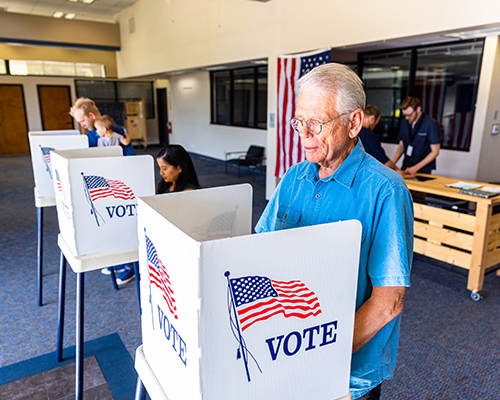

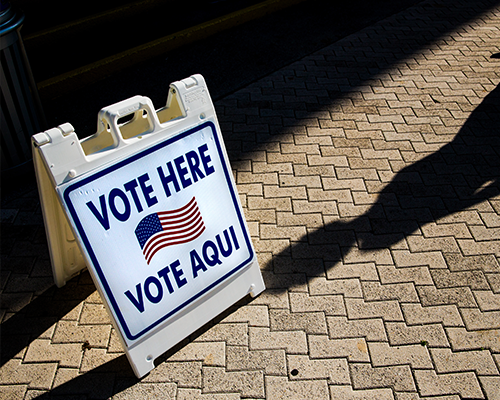

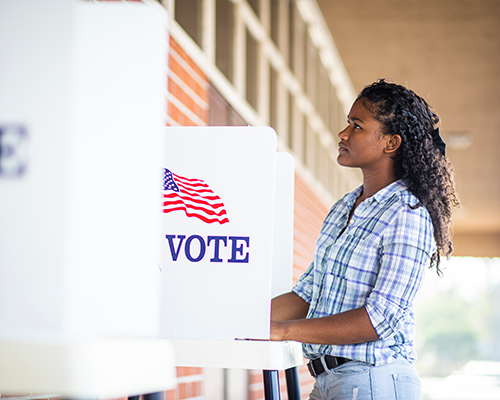
Getting Ready To Administer Elections
Pennsylvania hires and trains tens of thousands of poll workers every election cycle to support its local, county, and state-level elections officials. With a strong decentralized elections process, all 67 of the state’s counties administer their own federal, state, and local elections according to state and federal law.
These poll workers and officials receive training on how to run an election in compliance with all relevant laws.
The board of elections in each county in Pennsylvania identifies voting precincts and suitable polling places that will accommodate the number of voters in their area. Many polling places are churches, schools and other community facilities.

Preparing Paper Ballots
All voting machines used in Pennsylvania produce paper ballots. These voter-verifiable paper records can be audited in order to confirm the accuracy of the election tally.

Voting machine testing
While Pennsylvania counties select their own voting systems, federal and state officials must certify that they comply with legal requirements. Paper ballots are always preserved so that the accuracy of voting machines can be verified.
Before every election, all voting machines, backup equipment and other election-related equipment is examined and tested by a bipartisan team of election workers to ensure they will work properly for all voting and tabulating. These tests can take days or weeks, and any problems identified in the testing are documented, examined, and resolved prior to the equipment being certified to use.
Before every election, counties conduct “logic and accuracy testing,” where each machine that will be used is tested again. This testing is done on voting machines, which voters use to cast ballots, as well as tabulators, which scan and count paper ballots. This testing may be viewed by the public.
During a logic and accuracy test, Pennsylvania elections officials will verify that:
- all ballots are accurately defined and that all necessary contests are properly programmed within voting machines;
- all votes are aggregated and tabulated correctly, and that all accompanying hardware is working;
- all voting system component configurations meet federal and state standards; and
- the voting system software and firmware function properly.
All voting machines used in Pennsylvania’s elections are certified by the U.S. Election Assistance Commission and the Secretary of the Commonwealth.The state certification process ensures that every machine is not connected to the internet and has safety features to prevent unauthorized access or tampering.
All voting machines in Pennsylvania produce paper ballots, which is an important safety feature. These paper ballots can be recounted or audited to ensure the accuracy of an election’s results.
In Pennsylvania, no voting machines are connected to the Internet.
Voting machines are routinely tested in public ahead of each election to ensure they will provide accurate results. Counties regularly invest their federal and state election funding into upgrading the cyber and physical security of their election systems and voting facilities.
Looking for more information? Try these resources: